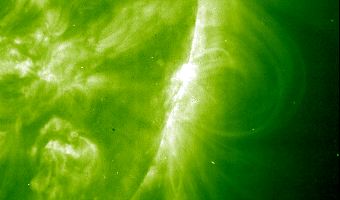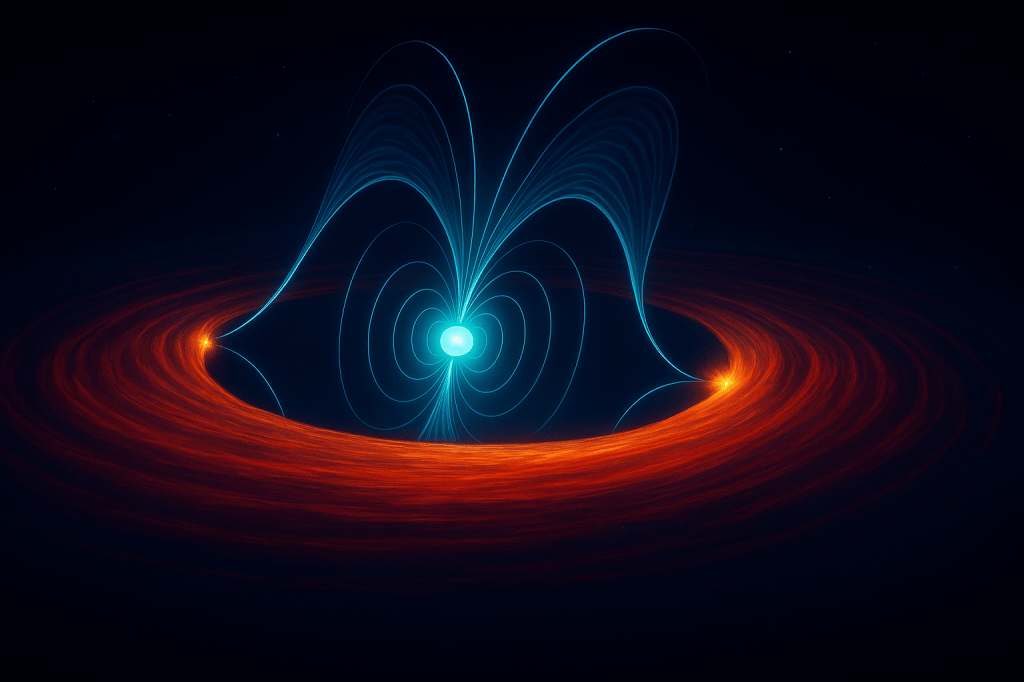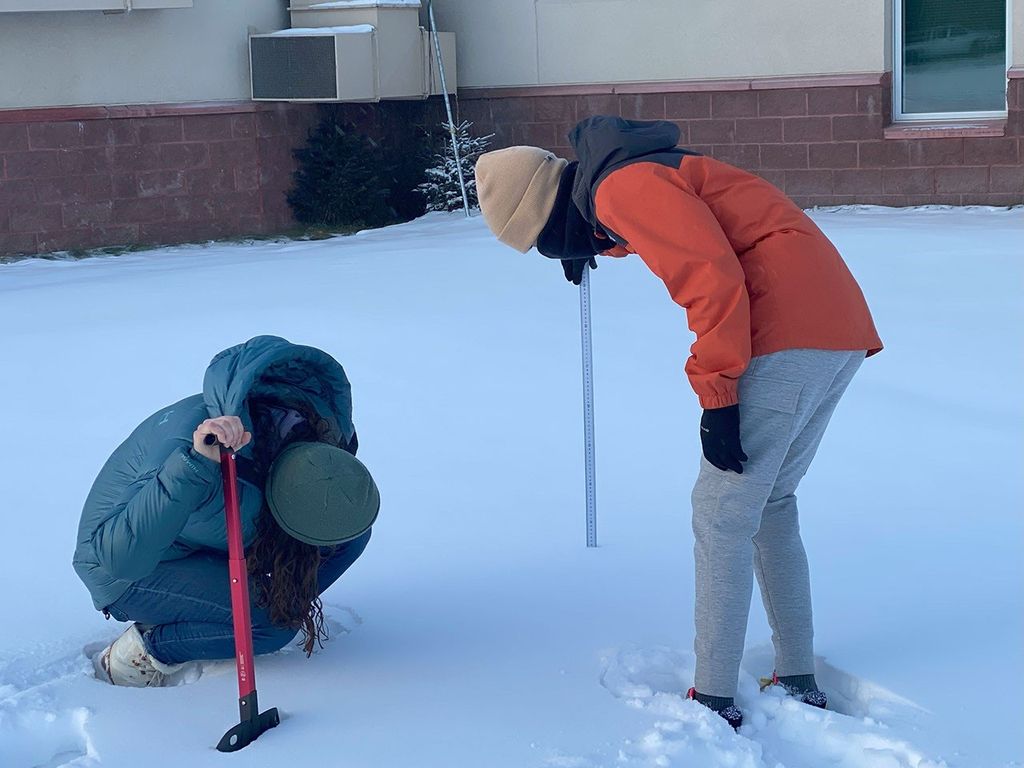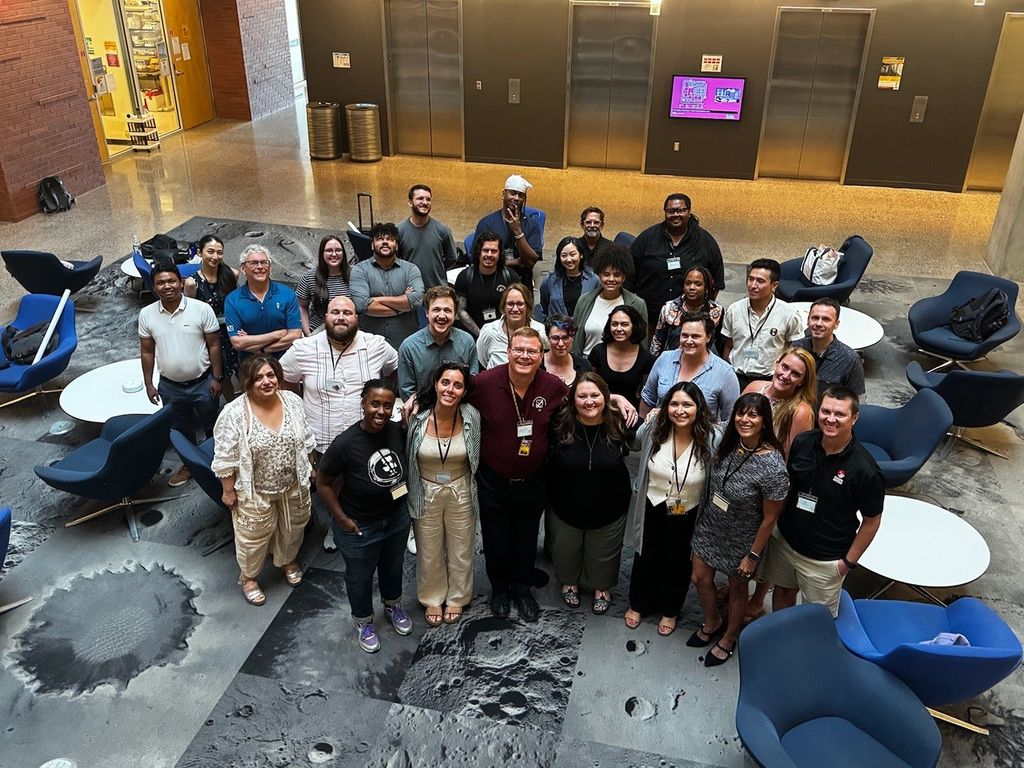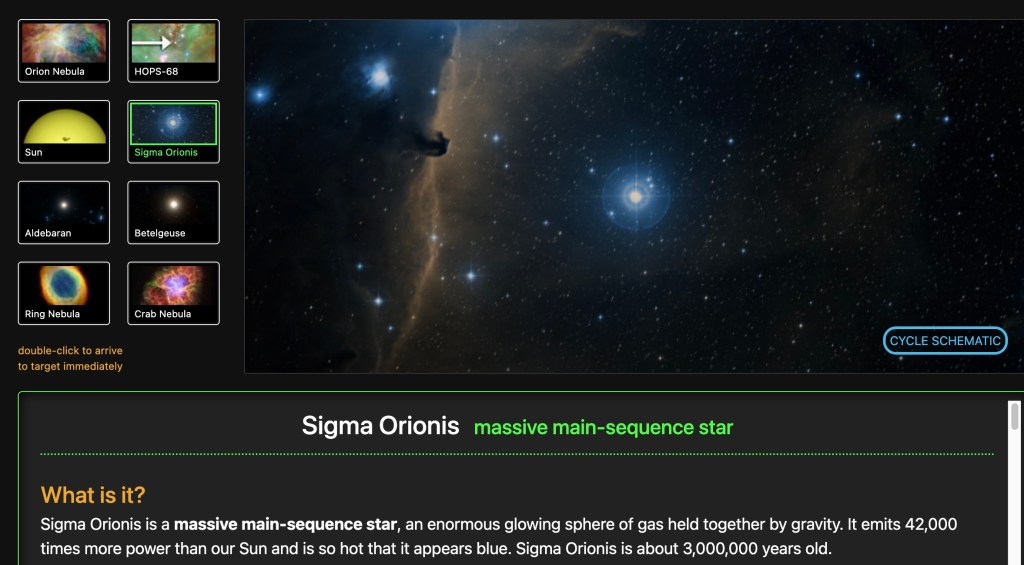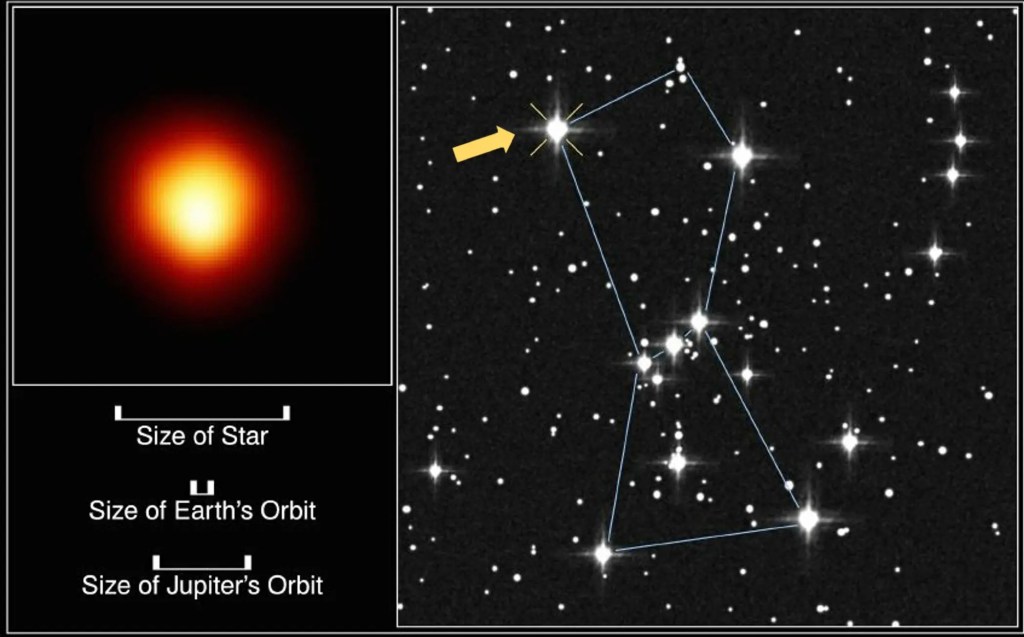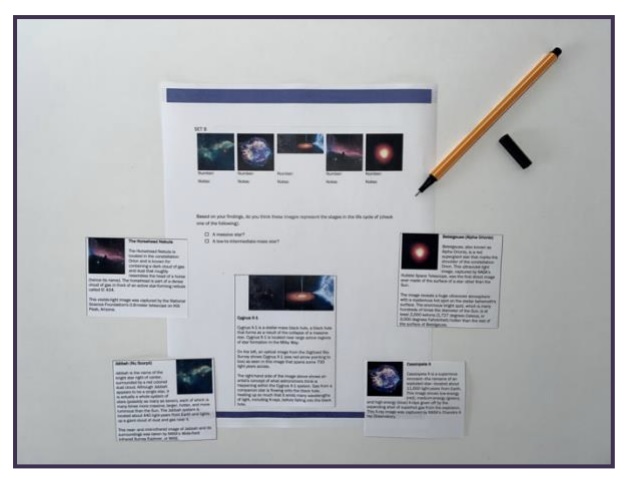Advanced Guiding Question
Do other stars behave similarly to the Sun?
Big Idea 3.3
Educator Background
-
Other stars behave similarly to our Sun in their formation, lifespan, and nuclear processes. Stars vary in mass, composition, color, brightness, and age. These variables determine the lifespan of the star. Larger mass stars have short, violent lifespans, while our medium-sized Sun is living a long, stable life. We are halfway through the Sun's lifespan, which has given Earth enough time to evolve life. Like other stars, the Sun will eventually deplete its fuel and its life will end.
-
Learning Constraints
At this level, students learn about nuclear processes in the Sun, the influence of the Sun on Earth (HS-ESS1-1) (HS-ESS1-6), and how we study other stars (HS-ESS1-2,3).
-
Connect to Heliophysics
Connect to the Sun seamlessly through this question. Emphasize that life on Earth exists because of the Sun, and that we don't know of any other stars in the galaxy that host planets with life. The Sun is the right size, the right age, and Earth is the perfect distance from the Sun. More massive stars have shorter life spans and also produce intense amounts of UV light, which is damaging to living organisms.
-
Extend Exploration
Extend student exploration by investigating other factors that contribute to Earth's success. Jupiter's gravity may help deflect asteroids on a collision course with Earth, and scientists believe that the Moon (a result of a collision of an object with Earth) helps stabilize Earth's rotation, keeping our climate stable. It is the combination of all of these factors that makes Earth unique in the known universe.
-
Differentiate for Beginner Learners
Support beginner students by reviewing the structure of the Sun and the nuclear processes at its core.
-
Differentiate for More Advanced Learners
Challenge students at the next level to investigate how NASA studies distant stars, using the knowledge we have gained from studying our own Sun.
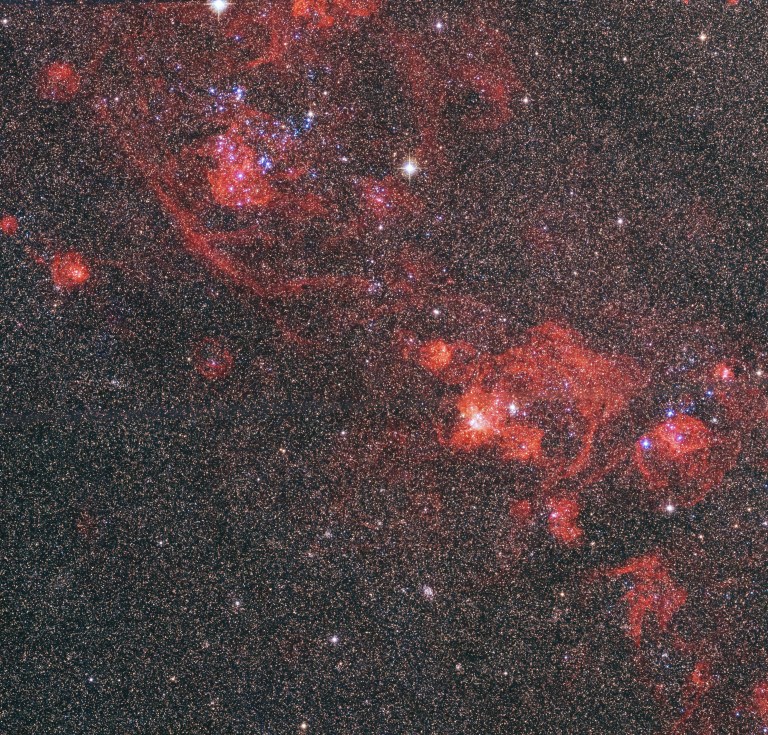
NASA's Kepler, Swift Missions Harvest 'Pumpkin' Stars
Video Length: 2:02
Search the Resource Database for more videosRecommended Resources
Explore this guiding question with these featured advanced level resources.
Heliophysics Resource Database
Use the guiding question above to explore resources at this level or go directly to our database to search for resources by level, NGSS performance expectation, topic, and mission.
Resource Database